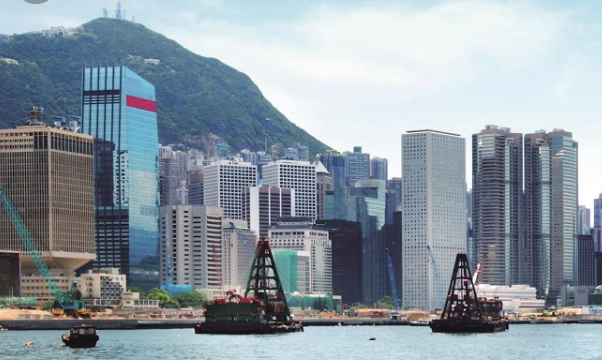Hong Kong's Economy Set To Shrink In Fourth Quarter Due To Protests

On Sunday (Dec. 29) the financial secretary, Paul Chan said that Hong Kong’s economy is set to shrink in the fourth quarter as the city reels from six months of violent social unrest. He said in a blog post, “Based on the situation of these few months, it is inevitable that negative growth will continue. This means the government will be less flexible in using financial resources under an economic recession.”
According to Bloomberg, the increasingly violent pro-democracy protests have undermined Hong Kong’s economy, discouraging tourists from visiting and slashing retail sale. Civil Human Rights Front has held some of the biggest rallies since the unrest began. There are reports that the number of mainland visitors, who make up the biggest group of tourists in the city plunged by almost half during the unrest, while retail revenue has dropped by about a quarter.
The social unrest has taken its toll on the economy and created a rift between the government and activists. Initially, protesters demanded the withdrawal of a proposed extradition law that would have allowed fugitives to be sent to China to stand trial. When the bill was pulled months later, the demands had expanded to include more democracy and direct elections for the city’s leader.
In his budget speech to be delivered in February, Chan said the budget will focus on supporting business, safeguarding employment, reviving the economy and relieving social distress.
Statistics of visitor arrivals
Latest statistics shows that visitor arrivals from China fell a by 46% in October to slightly more than 2.5 million (which is less than half of the record set in January). The most recent data for retail sales in Hong Kong showed a 24.3% plunge which is the biggest that has ever occurred.
Hong Kong’s Chief Secretary Matthew Cheung in another statement said the city’s institutional strengths such as the rule of law, clean government and a level playing field for businesses have remained strong and intact. He reiterated the government's commitment to broaden its channels of communications with the public, listening and responding more to people’s views and concerns in the coming year.
He further said in the statement, "The city is establishing an independent review committee comprising experts and community leaders to look into the causes and full circumstances of the social unrest, examining deep-seated issues including unaffordable housing and the wealth gap. The year 2019 has been a year of unremitting shocks and turbulence to our community and our economy. The past six months have been tough for us, but we will soldier on. The government forecasts an annual economic contraction of 1.3% for 2019. The unemployment rate rose to 3.2% in November, the highest level since July 2017. During the protests, more than 2,600 people have been injured, including more than 500 police officers. Multiple rail stations were vandalized, and almost 21,000 square meters (226,042 square feet) of paving blocks from walkways were ripped up and used to attack police officers. More than 52,000 meters (170,604 feet) of street-side railing were removed and 740 sets of traffic lights were destroyed."
The perceived threat to Hong Kong’s autonomy from China’s expanding influence in the former British colony that was returned in 1997 has been central to the protests.
Investing Port will be keeping a close watch on Hong Kong's economy to se how investor-decisions will be influenced in the coming year.


Be the first to comment!
You must login to comment